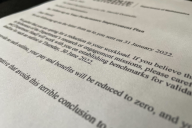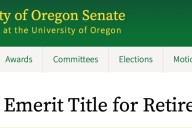You have /5 articles left.
Sign up for a free account or log in.
More than 6 in 10 higher education employees fear their retirement savings will not be enough for a comfortable retirement, according to a survey released Monday by Fidelity Investments.
The survey found that most employees in academe — regardless of age — feel like novices when it comes to investing their money. More than half of those surveyed reported they feel “overwhelmed” by the investing process and wish they had more guidance from their employers, according to the survey.
Fidelity officials said this trend seems to be indicative of the economy as a whole. As the economy dipped, employees were being asked to take on more responsibility for their own retirement savings, and many fear for the long-term viability of Social Security.
"It's not all that surprising when you look at the rollercoaster people have been on in the last 18 to 24 months in the market," said Lauren Brouhard, senior vice president of marketing of the tax exempt market at Fidelity Investments, said. "It's not uncommon for people to be investing more conservatively, especially younger investors who are skittish based on the markets that they see."
Fidelity surveyed about 600 higher education employees, including faculty members, administrators, general staff and executive staff members from private and public institutions, and analyzed the responses by employee age. (Those surveyed were among all higher education employees, randomly selected, regardless of whether they are Fidelity clients.) Most respondents said they do not have a formal retirement plan, even though they say that is the most important savings area for them.
And even though the younger groups should be more aggressive with their investments, the survey found their asset allocations are on par with those in the baby boomer group. It also found that half of the employees surveyed considered themselves “conservative” retirement investors, no matter the age.
| All Faculty | Baby Boomer Faculty | Non-Faculty | |
| Beginner at investing | 39% | 37% | 61% |
| Experienced at investing | 20% | 24% | 7% |
| Lack a long-term strategy | 16% | 10% | 32% |
| Have a formal investment plan | 28% | 30% | 22% |
| Developed retirement plan before age 40 | 55% | 29% | 76% |
| Check retirement accounts yearly | 91% | 94% | 79% |
| Check retirement accounts monthly | 49% | 43% | 32% |
| Report retirement planning is overwhelming and wish more guidance was provided | 45% | 38% | 53% |
Fidelity also found that 46 percent of respondents reported that they will delay retirement past the age of 65 or will not retire at all. The survey attributes this to a bad economy and the need for continued income and health benefits, in addition to employees wanting to stay at an enjoyable job.
Brouhard said the best way to change a reluctance to retire is to help people plan early and learn more about the process. "We want to see people taking the time to set a long-term strategy for themselves and then make a regular check-up, just like you would with a doctor," she said. "We want people to look at this holistically, at the many ways to save and invest."
| All | Gen Y | Gen X | Baby Boomers | |
| Will delay retirement or never retire | 46% | 41% | 43% | 51% |
This survey seems to follow trends pinpointed in a similar report compiled by TIAA-CREF in 2009. That survey found, over a six-month period, that about one-third of employees over the age of 50 were delaying their retirement. A similar number reported altering their plans for life in retirement because of a lack of funds, the survey found.








